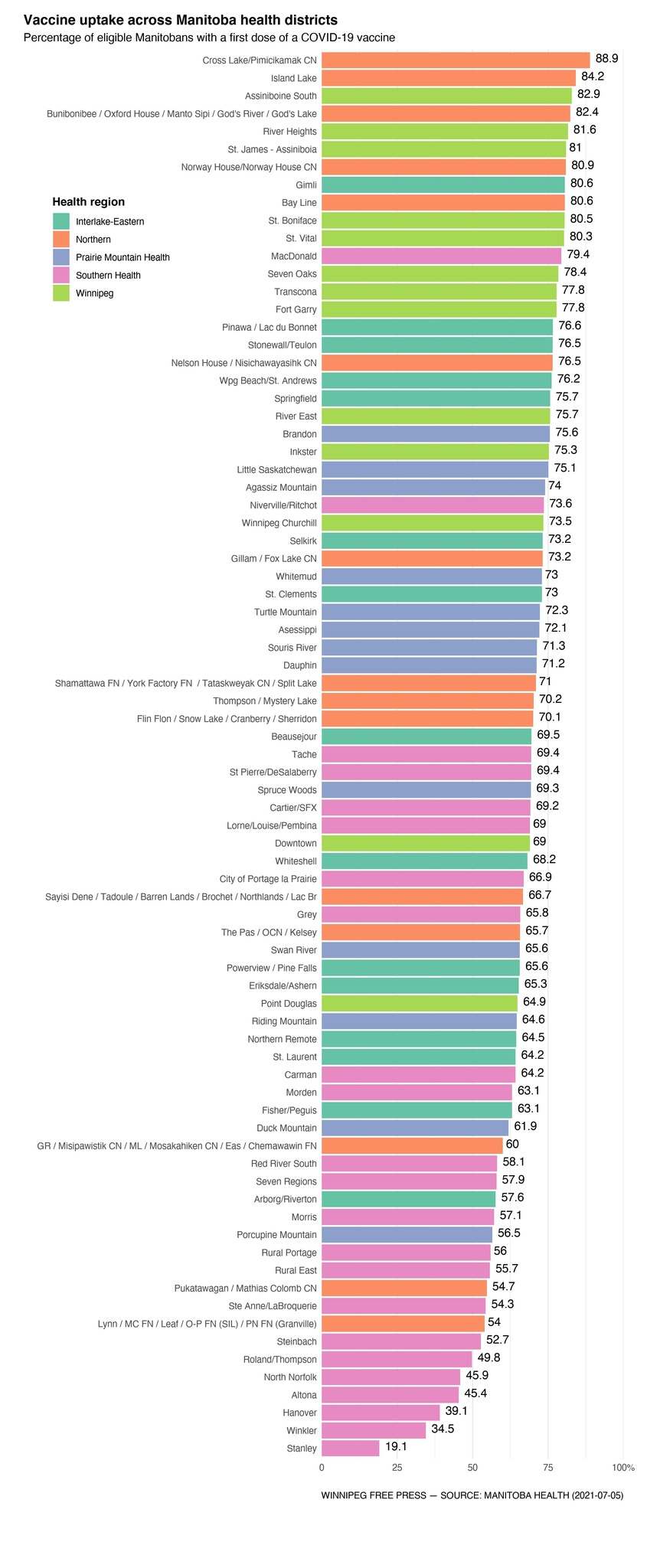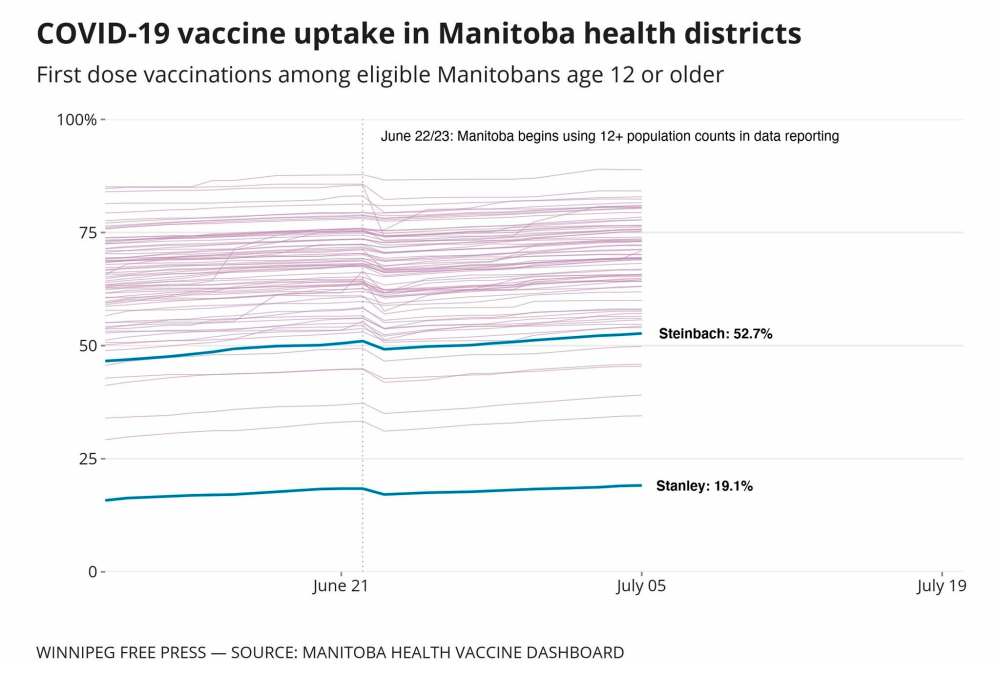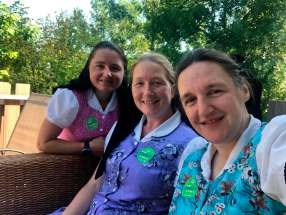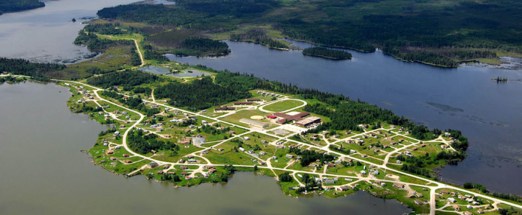Pimicikamak leads community vaccination pack
Read this article for free:
or
Already have an account? Log in here »
To continue reading, please subscribe:
Monthly Digital Subscription
$0 for the first 4 weeks*
- Enjoy unlimited reading on winnipegfreepress.com
- Read the E-Edition, our digital replica newspaper
- Access News Break, our award-winning app
- Play interactive puzzles
*No charge for 4 weeks then price increases to the regular rate of $19.00 plus GST every four weeks. Offer available to new and qualified returning subscribers only. Cancel any time.
Monthly Digital Subscription
$4.75/week*
- Enjoy unlimited reading on winnipegfreepress.com
- Read the E-Edition, our digital replica newspaper
- Access News Break, our award-winning app
- Play interactive puzzles
*Billed as $19 plus GST every four weeks. Cancel any time.
To continue reading, please subscribe:
Add Free Press access to your Brandon Sun subscription for only an additional
$1 for the first 4 weeks*
*Your next subscription payment will increase by $1.00 and you will be charged $16.99 plus GST for four weeks. After four weeks, your payment will increase to $23.99 plus GST every four weeks.
Read unlimited articles for free today:
or
Already have an account? Log in here »
Hey there, time traveller!
This article was published 05/07/2021 (1619 days ago), so information in it may no longer be current.
A small northern Manitoba community hit hard by the COVID-19 pandemic has vaccinated nearly 90 per cent of its eligible residents, besting even the most enthusiastic urban centres on vaccine uptake.
“It’s something that we’ve looked forward to and it’s something that we’ve aspired to: to be one of the highest vaccinated communities,” Pimicikamak Cree Nation Chief David Monias said in an interview Monday with the Free Press.
“Opening things up in the community, interacting with people, while still staying safe with the mask and so forth, is something that a lot of people took for granted. And now that you get it back, it’s something that you cherish.”
As of Monday, the Cross Lake/Pimicikamak health district boasted a COVID-19 immunization rate of 88.9 per cent — compared to the provincial average of 74.8 per cent — and held the No. 1 spot for vaccine uptake among all of the province’s 79 districts.
The district, which also includes the Incorporated Community of Cross Lake, has an estimated population of about 5,450 people, according to the Manitoba government.
Many residents live on the First Nation about 800 kilometres north of Winnipeg by road; Monias estimates about 7,500 people currently live in the community.
Monias attributed the high uptake rate to the work of local officials to promote vaccination, to community members who encouraged each other to be immunized, and to those who had caught COVID-19 and chose to share their experience with others to demonstrate the importance of immunization.
He said the best motivator was the protection vaccination offered and the chance to again gather with friends and family.
“A lot of people were at a point where they hated being isolated,” Monias said.
In February, Pimicikamak was forced into lockdown after an increase in gatherings helped COVID-19 spread, infecting hundreds. The Canadian Armed Forces were also deployed to support the community.
A total of 744 confirmed cases of COVID-19 have been reported in the health district since the pandemic began, including eight deaths.
The community has not reported a single new or active case of COVID-19 for more than two weeks, Monias said, and strict public health measures are now being lifted.
Last week, the community celebrated with an outdoor concert featuring local musicians.
“Normally, where you would see people gathered and fighting for the best seats, but instead you see people spread out,” Monias said. “But it was just ecstatic, and when you think about it, how good it felt to be out there, to be able to do something and to take in a show.
“It felt like being free again.”
On the regional level, Winnipeg is leading the province with 77.5 per cent of eligible residents immunized with at least one dose. Interlake-Eastern is second at 71.3 per cent, followed closely by Northern Health at 71 per cent, and Prairie Mountain at 70.7 per cent.
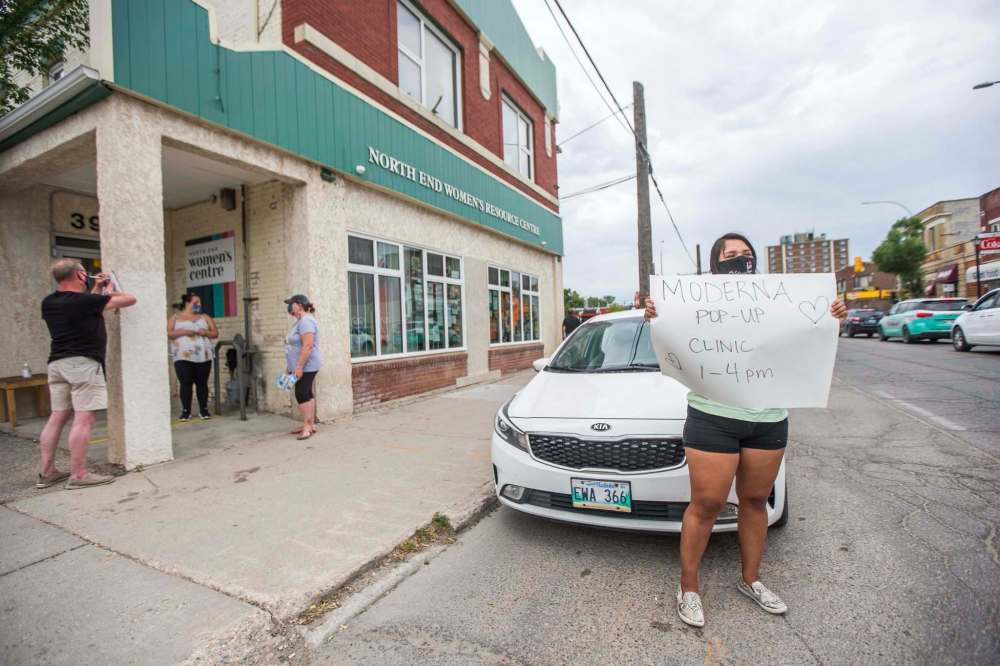
Within each region, there remain districts where uptake is below average, at about 55 to 65 per cent. However, the largest gap is in Southern Health, which has fallen behind at 56.3 per cent overall.
The health district of Stanley, which has about 5,530 people, has an uptake rate of 19 per cent, as of Monday, which increased from 18.4 per cent two weeks ago.
The Winkler health district, which falls within the boundaries of Stanley, has an uptake rate of 34.5 per cent, while neighbouring Morden has an uptake rate of 63.1 per cent.
In Steinbach, immunization rates have steadily increased since the local mass vaccination clinic opened. Nearly 53 per cent of eligible Steinbach residents have chosen to be immunized, an increase of more than two percentage points in the past two weeks.
Within the Winnipeg Regional Health Authority, the Point Douglas health district, a community of approximately 48,591 which includes the North End and St. John’s neighbourhoods, vaccine uptake is at 64.9 per cent, the lowest in the city.
By comparison, the district of Assiniboine South, which includes Charleswood and Tuxedo, is leading Winnipeg with 82.9 per cent of the eligible population at least partially vaccinated.
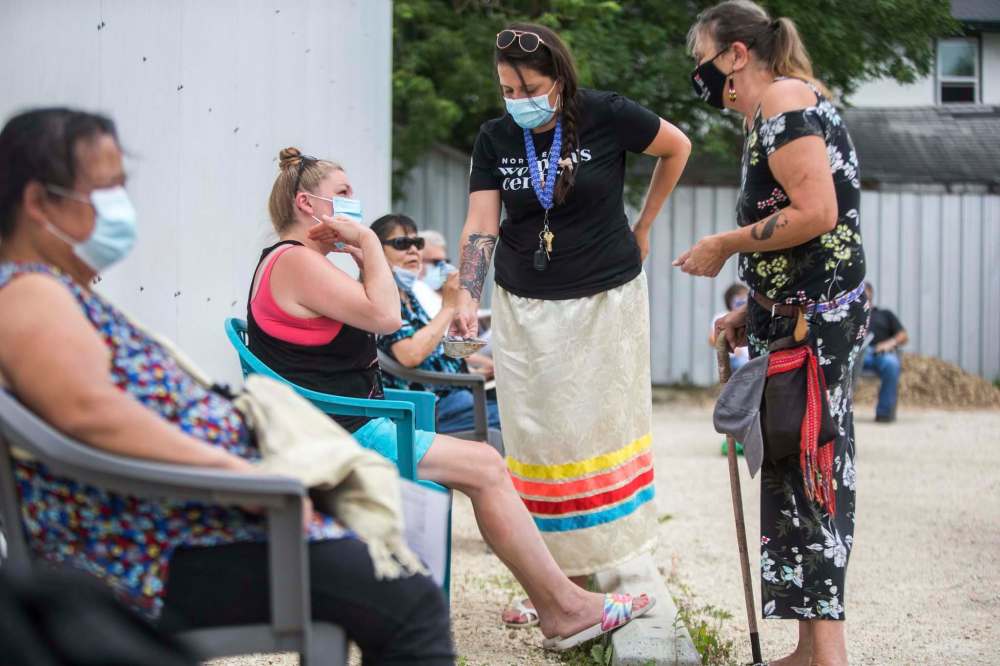
Kristi Beaune, director of organizational development at the North End Women’s Centre, said people living in the area want to be vaccinated but need to be able to access the shot in a familiar setting.
At a recent pop-up clinic hosted by the Selkirk Avenue centre, residents queued two hours before the clinic opened and all the doses were used by the end of the day, she said.
“It’s about access and reducing the barriers,” Beaune said.
People who attended the clinic also had a chance to receive a care package or to take home one of 30 bicycles and helmets, courtesy of the WRENCH non-profit, for children or youth.
Beaune said the centre hopes to host another clinic in the near future and has applied for a grant from the provincial government to support its outreach efforts.
danielle.dasilva@freepress.mb.ca

Our newsroom depends on a growing audience of readers to power our journalism. If you are not a paid reader, please consider becoming a subscriber.
Our newsroom depends on its audience of readers to power our journalism. Thank you for your support.

